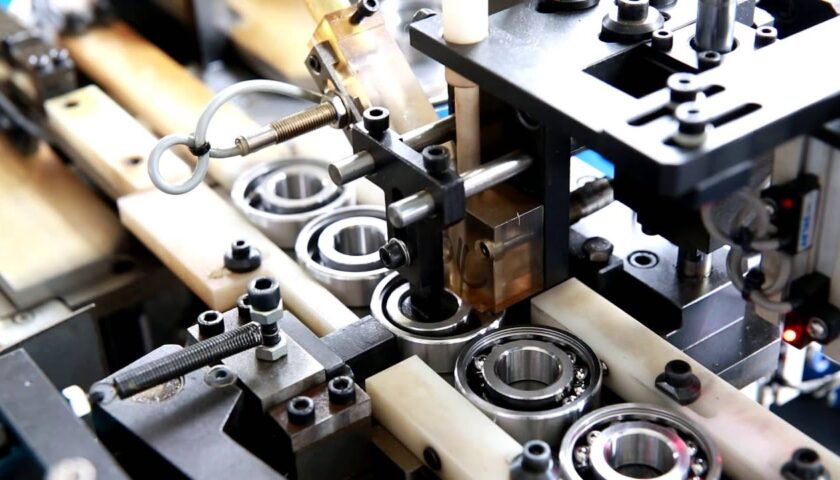In recent years, Mexico has emerged as a powerhouse in the global automotive industry, producing millions of cars annually and contributing significantly to the world’s automobile market. This article delves into the vibrant landscape of Mexico’s automotive clusters, exploring how they have become hubs of innovation and production, making the country a key player in the automotive world. From the quality of cars made in Mexico to the workforce driving this industry, we’ll uncover the inner workings of this dynamic sector.
Chapter 1: The Rise of Mexican Automotive Clusters
Creating a Robust Automotive Manufacturing Ecosystem
Mexico’s automotive journey has been nothing short of remarkable. Historically, the country has attracted substantial foreign investment in the automotive sector. Major automakers recognized the potential of Mexico’s strategic location, skilled workforce, and trade agreements like the United States-Mexico-Canada Agreement (USMCA). As a result, they have established production facilities across the country, transforming it into a formidable player in the global automotive arena.
Exploring the Geography of Mexican Automotive Clusters
One of the key factors contributing to Mexico’s success in the automotive industry is the clustering of manufacturing facilities in specific regions. Notable automotive clusters exist in Baja California, Nuevo Leon, and Guanajuato. These clusters provide numerous advantages, including economies of scale, more accessible access to suppliers, and a concentrated pool of skilled labor. This geographical concentration fosters competitiveness and innovation in the automotive sector.
Chapter 2: Cars Made in Mexico: A Global Perspective
Mexico’s Contribution to the Global Automotive Market
Mexico’s impact on the global automotive market is substantial. The country consistently ranks among the top ten automobile producers worldwide. Renowned automakers such as Toyota, General Motors, and Volkswagen have established manufacturing plants in Mexico. These facilities produce many vehicles, from compact cars to trucks, contributing significantly to global automotive production.
Quality and Craftsmanship of Cars Made in Mexico
Cars made in Mexico have gained recognition for their quality and craftsmanship. Modern manufacturing facilities in Mexico incorporate advanced technology and adhere to strict quality control measures. Many Mexican-made vehicles are exported to North America, Europe, and other parts of the world. The quality and technology integrated into these vehicles are on par with international standards, dispelling doubts about their competitiveness.
Chapter 3: Innovations Driving Mexico’s Automotive Clusters
Advancements in Automotive Technology
Mexico’s automotive clusters are not just hubs for manufacturing but also innovation centers. Adopting Industry 4.0 principles has revolutionized manufacturing processes in Mexican automotive plants. Automation, data analytics, and artificial intelligence are increasingly used to enhance efficiency and quality. This technological evolution positions Mexico as a leader in adopting cutting-edge practices within the automotive industry.
Sustainability Initiatives in Mexican Automotive Clusters
Sustainability has become a key focus in Mexican automotive clusters. Manufacturers are actively implementing eco-friendly practices and reducing their environmental footprint. Initiatives include using renewable energy sources, recycling programs for materials, and developing electric and hybrid vehicles. Mexican automotive companies are committed to preserving the environment while meeting the demands of a rapidly evolving market.
Chapter 4: The Workforce Behind Cars Made in Mexico
Skilled Labor and Talent Development
The success of Mexico’s automotive industry is also attributed to its skilled workforce. Automakers invest in training and education programs to ensure workers possess the necessary skills for advanced manufacturing techniques. Moreover, universities and technical institutes collaborate with the industry to produce a steady stream of qualified engineers and technicians. This synergy between education and drive creates a talent pool that sustains automotive clusters’ growth.
The Socioeconomic Impact of Automotive Clusters
The presence of automotive clusters profoundly impacts the regions where they are located. These clusters generate employment opportunities within the manufacturing plants and in associated industries such as logistics and services. Additionally, the economic growth spurred by these clusters contributes to community development. Many automakers engage in corporate social responsibility initiatives, further enhancing their relationships with local communities.
Mexico Cars: Government’s Hand
Government policies play a crucial role in shaping the automotive industry’s future.
- Environmental Regulations
- Mexico Cars: Green Policies
- Implementing and enforcing stringent environmental regulations can push automakers to adopt cleaner technologies, fostering sustainability.
- Trade Agreements
- Mexico Cars: Trade Dynamics
- Ongoing negotiations and trade agreements can significantly impact the industry. Staying updated on trade dynamics is vital for long-term planning.
- Incentives and Support
- Mexico Cars: Government Incentives
- Governments can encourage the adoption of new technologies by providing incentives and support for research, development, and manufacturing.
Navigating the Digital Transformation
Mexico Cars: The Digital Drive
The digital transformation is reshaping the automotive industry. Embracing digitalization can offer numerous advantages:
- Connected Vehicles
- Mexico Cars: Staying Connected
- Integrating innovative technology into vehicles can enhance safety and offer new services, providing a competitive edge.
- Data Analytics
- Mexico Cars: Data-Driven Decisions
- Leveraging data analytics can optimize manufacturing processes, predict maintenance needs, and improve overall efficiency.
- E-commerce and Sales
- Mexico Cars: Online Revolution
- Expanding online sales channels can reach a broader customer base and streamline buying.
Sustainable Practices for a Greener Future
Mexico Cars: Driving Towards Sustainability
Sustainability is no longer an option; it’s necessary for the Mexican automotive industry.
- Green Manufacturing
- Mexico Cars: Sustainable Production
- Implementing eco-friendly manufacturing practices, such as recycling and reducing waste, can minimize the industry’s environmental footprint.
- Alternative Fuels
- Mexico Cars: Fuelling the Future
- Exploring alternative fuels like hydrogen and biofuels can help reduce greenhouse gas emissions.
- Circular Economy
- Mexico Cars: Closing the Loop
- Adopting a circular economy approach, where materials are reused and recycled, can make the industry more sustainable.
Chapter 5: Challenges and Opportunities for Mexico’s Automotive Industry
Challenges Faced by the Mexican Automotive Industry
Despite its successes, Mexico’s automotive industry faces its fair share of challenges. Recent global supply chain disruptions, such as those caused by the COVID-19 pandemic, have highlighted vulnerabilities in the industry’s reliance on just-in-time production. Environmental concerns and increasing regulatory pressures require manufacturers to adapt and develop sustainable practices.
Future Prospects and Opportunities
Looking ahead, Mexico’s automotive industry remains poised for growth. Expanding Mexico’s presence in the electric vehicle (EV) market is one promising avenue. Many automakers are investing in EV production facilities in Mexico, recognizing the country’s potential as a hub for green automotive technology. Strengthening global partnerships and trade agreements, such as the USMCA, will open new opportunities for Mexican automotive exports.
The Roadmap to Success
Mexico Cars: The Journey Ahead
To ensure long-term success, the Mexican automotive industry must chart a strategic roadmap:
- Investing in Innovation
- Mexico Cars: Innovate to Dominate
- Continued research, development, and innovation investment are essential to stay competitive.
- Sustainability at the Core
- Mexico Cars: Green from the Start
- Sustainability should be a core value, with eco-friendly practices integrated into every aspect of the industry.
- Government and Industry Collaboration
- Mexico Cars: A Collaborative Future
- Collaborative efforts between the government and the industry are crucial to addressing challenges and leveraging opportunities
Conclusion
In conclusion, Mexico’s automotive clusters have transformed the country into a significant player in the global automotive industry. The quality and craftsmanship of cars made in Mexico have earned international acclaim, and the adoption of advanced technologies drives innovation within the industry. The skilled workforce and socioeconomic benefits brought by automotive clusters.





